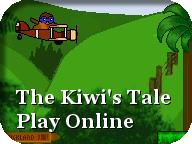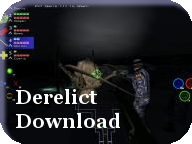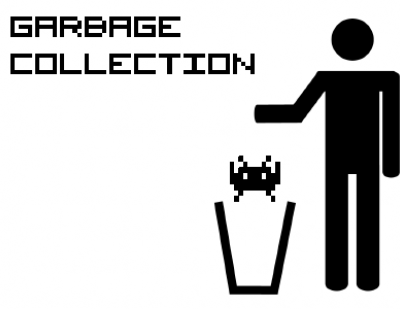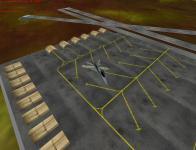Are games art?
Submitted by Earok on Mon, 05/10/2010 - 00:00Popular film critic Roger Ebert has reignited debate in gamer circles about the 'Are games art?' controversy with his response to a recent TED talk, claiming that games can never be art, or at least not in our lifetime.
For the record, here is my take. Short answer, yes, in almost every case.
To answer the question of 'Are games art?' first, you need to define art. Unfortunately it seems the definition of art is as subjective as art itself. I quite like the Wikipedia definition (given during the TED talk) so I'll quote it here:
"Art is the process or product of deliberately arranging elements in a way to affect the senses or emotions."
In nearly every case (Excluding highly abstracted simulators, puzzles etc) Games are deliberately built to effect the senses or emotions.
What makes games different from most other kinds of art is the interactivity layer, which is generally singled out as the reason why games can't be considered art. Though, as A theory of fun points out, all forms of art are interactive to some extent, for instance music can be sung to, danced to, remixed etc. Yet the interactivity layer itself affects emotion through the challenges (elation of victory or frustration of defeat) and options granted to the player (Moral dilemmas etc) and their consequences (Happy, sad ending etc). Matthew Gatland's Global Game Jam 2010 entry Return to Happytown is a good example of this.
Even if the interactive element of games can't be considered art, games still contain elements from 'recognised' art forms such as animation, static images, music and acting. The Darkness actually contains several entire classic films which can be watched with NPCs as part of the narrative of the game.
I have to wonder though, was Ebert's post just a giant troll? He does make some pretty ridiculous statements, like suggesting Braid was more pathetic then chicken scratchings without actually having played it. If so, well, I guess the joke is on me!
Garbage Collection 1: Crap Flight Simulator 2
Submitted by Earok on Fri, 05/07/2010 - 00:00Every Friday for at least the next two months (!) I intend to brush off one of my older, crappier, unfinished and possibly unplayable game projects, for public release to anyone who may be interested. Here is the first entry: Crap Flight Simulator 2
Overview
Crap Flight Simulator 2 is a barebones Flight Simulator I made as my first ever Blitz3D project. Despite being new to the language, I managed to build most of the engine in a day, which surprised me because what I accomplished was far greater then anything I had ever managed after months of toiling in DarkBasic. Obviously, I was immediately convinced to switch. Most of the art (Including an original F/A-18 model) was provided later by Mark Harper, who later built the gun models in Derelict.
I was hoping to take the basic concept and flesh it into an action Flight Simulator (similar to Strike Commander) but that never panned out. There isn't really much to do in the game except for fly around, land and try not to hit anything.
Instructions
Pitch: Cursor up and down
Roll: Cursor left and right
Yaw: < and >
Throttle Up: A
Throttle Down: Z
Camera: F1-F4
Download
The game can be downloaded from the Garbage Collection page or here.
Earok interviews Cobra Blade
Submitted by Earok on Wed, 05/05/2010 - 08:14The rise of Cobra Blade
Cobra Blade (Real name, no gimmicks) is an independent game developer who exclusively develops for the Mac platform. His current project is PowerSlam, a Mac wrestling game powered by the engine of MDickie's Federation Wrestling. I thought it might be interesting to interview him for the blog, especially in regards to Mac game development, and so here it is.
Tell us a bit about yourself
I'm a 27 year old indie Mac game developer from Australia. I am also a Mac gamer with currently around 65 Mac games. My main interests are games, anime, as well as steampunk and cyberpunk.
What compelled you to become a game designer?
Well I have always been very artistic. The furthest back I can remember I wanted to create games. I use to draw all sorts of characters and think up stories and what the game would be like. For the most part they were all fighting based game ideas with the odd exception.
How did you become introduced to games?
Ah, I can blame my parents for that and my gaming addiction. They have a photo of me at around 6 months of age playing the Atari 2600. I've played games ever since. Growing up I got a Commodore 64 and then every SEGA console from the Master System onwards. Once SEGA pulled out of the console war I did too and don't play as many console games as I use to.
What tools do you use to create your games?
Well I have used all sorts in the past but I suppose the best place to focus is on my 1st finished project, Soulless. For this I started out in NovaShell, but being as hopeless at coding as I am I got frustrated so Googled game engines for the Mac that needed no programming. That is how I found Power Games Factory which I used to create Soulless from that point on.
Why do you exclusively make games for the Macintosh? Have you considered other platforms (Including Mobile, Web etc)
Game creation is very time consuming, even if you have nothing to show for it but a lot of half finished games. So I ended up retiring this aspect of my life for the remainder of being a PC owner. It wasn't until as a Mac owner I came across the game Kill Monty and saw the logo "OMG Original Mac Games". As a Mac gamer, this really spoke to me. I felt this was exactly what the platform needed, more original games. As game creation was what I always wanted to do, it just felt right. Supporting other platforms certainly isn't out of the question, although the Mac will always be my main priority.
How did your deal with MDickie come about?
After the disappointment of how Soulless was received and having it compared to games made by entire studios I decided to try and think outside the square. What was something that hasn't been done before? Since I have been a fan of wrestling games for some time this sprung to mind. There are not any wrestling games on the Mac and very few even on PC. Wrestling games however are extremely complex,and there was one I thought was a lot of fun that I played a long time ago. So I contacted Mat and asked him if I could licence the engine from him.
I understand that Soulless has been distributed through pirate channels. How did you feel about this?
Really shocked and really hurt. A lot of hard work and money went into making it that I'll never get back and you really feel awful when someone just takes that all away from you and gives it away leaving you with nothing. What really keeps me going though are the people that have supported me by buying my game. So a huge thank you goes out to them.
Tell us about how you went about marketing and selling Soulless
As a regular customer of Macgamestore my original goal was to get it onto there. When I was knocked back from there I asked Wally of Game Socks (another store I regularly visit) if I could get my game on his site. He told me they source their games from Reflexive so I contacted them. Reflexive were great and gave me suggestions they thought would make my game more marketable so I did this and have had my game on there ever since. Aside from this I also put a demo out on all of the major Mac file portals and even submitted it to Apple themselves who have it on their games download section.
Are there any indie game developers that you admire or draw inspiration from?
Funnily enough when I started out I had no real idea there were others like me doing whole games on their own, my goal in the beginning was to make games and get noticed by a big company like SEGA. Today though, I know a lot more and I take pride in being independent. As for admiration, after seeing Mat's code itself that powers his games I have to say his name comes to mind as does yourself having seen your coding ability firsthand also. Jesse Simko is also awesome and to be honest, just how easy and fun his Power Game Factory was inspired me to finally see a game through from start to finish. I swear that game creator is just as much fun as playing a game itself.
Finally, if someone was to ask you for advice about becoming a game designer, what would you tell them?
Mat Dickie said it is often a thankless job and he wasn't wrong. More often than not your single handed effort will be compared to what is done by entire studios so just ignored. Or even worse, if like myself your main focus is of more retro type games as that is what you feel is most enjoyable you even get those who will say they can just illegally download game X for free and run it on an emulator so why pay money for your game. Don't take it too much to heart if that happens though. I mean some of the most hated games by some can be loved by others. I know some of my favourite games aren't hits by any means. Also be sure to try and stick to one project, as you will find yourself with a million ideas flying through your head, but if you jump from one game to the other you'll end up in the situation I was in back when I tried to be a indie PC game maker and end up with just a whole bunch of unfinished games. Despite all the cons the great feeling you get when people buy your game and like it can't be described.
Cobra Blade can be contacted through his website at cobrablade.com. He also maintains a blog at insidemacgames.com
General Discussion, May 2010
Submitted by Earok on Mon, 05/03/2010 - 12:00This is bit of an experimental post, if it works then I'll post another one next month, otherwise it was worth a try.
The idea behind the General Discussion post is that it's an opportunity for you, one of the small number of (Very well appreciated) people who follow my blog, to comment on anything you like, even outside of the usual topics covered in this blog.
And, that's it, the mic is now over to you.
Drupal optimisations
Submitted by Earok on Fri, 04/30/2010 - 07:38A couple of months back at the Auckland Drupal meetup, organiser Michael Dance gave an excellent talk on optimising Drupal performance. I thought that it might be useful for me to summarise what I got out of the session, and that it might be interesting to both Drupal users and non Drupal users alike that follow this blog.
Note that these enhancements deal only with optimising performance for anonymous users (Authenticated users is much trickier) and most of these should be turned off during site development.
Optimising the codebase
High level Drupal sites require both maximum performance and maximum stability. The problem with performance and stability is that they are often mutually exclusive, and the core Drupal team is focused on providing stability above everything else.
That's where PressFlow comes in. PressFlow is a custom version of the latest stable Drupal version that is fully compatible (As far as I am aware) with all existing contributed modules, but contains numerous performance enhancements as well.
Optimising the Drupal application
Drupal has several built in performance optimisation settings, but these are turned off by default in order to not interfere with site development.
They can be found under the Administration > Site configuration > Performance menu, and should be turned on when the site goes live. This contains several settings for page caches, as well as optimising CSS and Javascript.
Optimisation at the PHP level
Whenever the web server needs to interpret PHP code, it will take a performance hit.
The Drupal Boost module can bypass PHP (and therefore, Drupal) altogether, by creating cached HTML versions of the pages on your site. When the underlying web server is properly configured, it will use these static HTML versions instead, only running the Drupal PHP code if an HTML version does not exist.
Optimisation at the web server level
It's not a stretch to say that Apache is the most powerful web server software available, but that power comes with a relatively high processor and memory footprint.
For sites requiring better performance, a smaller but highly optimised web server such as nginx might be a better alternative.
Optimisation before the web server level
No matter how optimised, a web server will take a performance hit every time a user directly connects to it.
Instead of allowing direct access to your site, you could direct traffic to a reverse proxy server (Also known as a 'HTTP Accelerator') which will serve the pages on the web server's behalf, only interacting with the web server if it does not have a stored copy of the required page. Varnish is an extremely high performance reverse proxy server that has the added bonus of having a Drupal module for tight integration.
Although I don't have a dedicated server, and therefore can't do all of these optimisations, I'll definitely look into at least PressFlow and Boost.
Post Script Frenzy stuff
Submitted by Earok on Wed, 04/28/2010 - 19:16Following Script Frenzy, I have decided to take a breather from game development as well for a bit and just concentrate on my website projects.
For the last couple of mornings I've been up at 6am or so and messing around with earok.net until work starts. Mainly it's to do with tidying up the apperance of the games pages, if you have a look at the Derelict page (http://earok.net/derelict) you can see I have made bit of a screenshot mozaic, and also the screenshots open in a nice jquery powered 'Lightbox' slideshow window if you click on them.
Although I am competent with raw HTML and understand PHP well enough to hack it, my CSS skills are severely lacking. I am learning though, Drupal has a great module called 'CSS injector' which lets you add CSS in a form, rather then having to edit the styles.css file. And the Firebug extension for Firefox is brilliant.
I also want to add functionality to make the site more useful for readers (Such as making an RSS feed for recent comments), ramp up the site performance as much as possible, and possibly look at developing a "Portfolio" type section I could use to better promote my game and web development work.
And there's a bunch of things I really want to do on the Playmaker site, I have done virtually no enhancements to it for the previous month, partly because I haven't been bothered getting my Playmaker test site up and running again for me to muck around!
That's all for now, any suggestions?
Finishing creative projects
Submitted by Earok on Mon, 04/26/2010 - 08:15I am now a veteran of the Retro Remakes competition, the 48 Hour Global Game Jam, Script Frenzy and NaNoWriMo, having successfully completed entries for all of these within the allocated time.
Yet, every time I do one of those things, I find myself really struggling until near the end. In the aftermath of Script Frenzy, I thought it might be useful for me to write down and share my ideas on completing creative projects while they're still fresh in my mind, and so here it is:
First off, I believe that the most commonly given excuse, lacking time, is not normally the cause of creative projects not being completed:
Let's take this perfectly plausible conversation.
PERSON A: For years I've wanted wanted to write a novel about [such and such]
PERSON B: That sounds great, why don't you?
PERSON A: Well, you know, between work and raising the kids and exercise and [blah blah, long list of important things that need to be done] I just don't have the time.
I think there are very few people who don't actually have the time to do the creative projects that they want to do.
Consider this, the basic minimum acceptable novel length is around 50,000 words (Brave New World, Catcher in the Rye etc). Spread that out over a year, that's just over 137 words. Maybe one or two paragraphs per day! Most people could easily fit that amount of writing into a coffee break. Some people could do far, far more in the same time.
Also, there's weekends, statutory holidays, annual leave from work etc. I am not saying that every free moment should be sunk into a creative endeavour, but how many of us truly couldn't put aside on average just half an hour day to work on a creative project that we really want to come to fruition?
I believe that the real issue is just a lack of motivation:
Working on creative projects is, frankly, really hard work, particularly between the 20% and 80% complete mark. And my theory of stress is, that given the possible expected outcomes of a decision, a human being will always choose the option he or she expects will cause the least amount of stress. Is it less stressful to work out the wording of the dramatic scene you want to write, or to re-check your twitter feed that you already did twenty minutes ago? Ummm..
Unless it is an idea you really exceptionally care about, creating the project in of itself is not normally enough motivation to complete it. Here are the ways that I build motivation:
- Set a deadline - The most important thing you can do, which will help you prioritise that project over everything else that wants your attention.
- Positive rewards - Allow yourself to have something nice for finishing the project.
- Negative rewards - Do something like give money to the NRA if you miss the deadline. Alternatively, you could just stop playing games, watching TV etc until the project is complete.
- Minimise distractions - How difficult is it to unplug that ethernet cable or flick the wireless switch on your laptop?
- Announce and discuss the project frequently - Which in itself can be a positive or negative reward, depending if you actually see it through!
- Draft or prototype - As Stephen King says, the first draft of anything sucks. There's no point in trying to build it the exact right way the first time (Which is next to impossible) so just whip out a complete, if rough, iteration of the project as soon as you can.
- Try to write every thought about your project - It's distracting to try and hold an idea in your mind until you actually implement it.
- Keep a list of stuff left to do - It's a waste of time to open up a project and have to work out what you're supposed to be doing next.
- Prioritise the list of stuff left do do - The easiest way to do this is ask yourself "If I can only do one more thing on the project, what would it be?"
- Schedule the list of stuff left to do - Write a date next to each item on your to-do list. While this can be demoralising if you miss a deadline and have to start over, I find doing this gives useful reassurance that (Assuming your deadlines are achievable) that the project is possible to complete.
-
Know what you're supposed to do ahead of time - I find that if you know you're meant to do something by the end of a particular day, you'll keep that task in the back of your mind, and work on it mentally during the course of the day.
- EDIT - As Josh had mentioned in the comments below, sometimes you need to force yourself to work on something, even if it's only a small addition. No Plot? No Problem! The official guide of NaNoWriMo suggests that you'll lose serious momentum if you take more than one day off from the project. Something that may help is to try working on a different part of your project, you could stop programming and do art, or you could stop writing that boring dinner table scene and start writing the awesome action packed climax to your novel.
- Also, as Josh has mentioned, it helps setting aside a particular time to work on your project. The only problem is I've never been successful in doing that! Setting a time in the evenings or in the weekend is bound to be interrupted by social obligations, and setting a time in the morning before work.. well.. it's a struggle for me to get up most days!
- Make your project about something you have a passion for. If you don't like reading epic historical romances or watching oscar winning dramas, don't try to make one!
Well, that's it! Some of it is pretty obvious, but I thought it might be useful none the less. Hope it helps.
Script Frenzy Victory!
Submitted by Earok on Sun, 04/25/2010 - 19:45Today, after a difficult month of running a script writing marathon, I have churned out a screenplay weighing in at over 100 pages (Somehow it expanded to 121 pages when I transferred it over to the Mac version of CeltX!) and over 18,000 words.
Whew! I made it! Thanks to everyone who supported me through this troublesome ordeal.
Just a bit of background on the script, it's called BattleSuit Epsilon and draws inspiration primarily from Starship Troopers and various Gundam Series. It's also loosely a sequel to Derelict. The story is about the efforts of a mentally deranged pilot of a prototypical powered armour suit to fend off an invasion from a powerful enemy. So, not exactly Oscar winning material, but it was lots of fun to write none the less.
I actually restarted the script from scratch (albiet with roughly the same backstory) on about the 9th so from start to end it took around 16 days to write. The reason why I restarted is I wasn't 100% happy with my original concept, and so my page count became rather stagnant and I needed new inspiration.
That inspiration came when Kirsty and I were walking home from the Auckland Game Development meetup, and we witnessed the delusional rantings of a (possibly just drunk or stoned) lunatic. He was seriously saying things like "When I fight, I AM A DRAGON" and "You think your droids CAN POSSIBLY DEFEND AGAINST ME". I kid you not. So I thought wouldn't it be awesome if he was my giant robot piloting protagonist? So that's what I ended up rewriting my script about.
Even though overall I wrote less then half the number of words required to win NaNoWriMo, it certainly wasn't half as easy to get there. For instance, it's harder to get in the 'writing zone' doing a script because you're constantly having to stop to change between scene, action, character and dialogue formatting. And you can't just bump up your word count by blathering out meaningless prose, as you can in NaNoWriMo.
Also, I think the lower bar for Script Frenzy actually made it harder to commit to keep working on it, with NaNoWriMo I was working on my novel before work at 7am almost every day, I might have done that once with Script Frenzy.
Well, I'm going to celebrate with a nice dinner at Dennys.
Script Frenzy update
Submitted by Earok on Tue, 04/13/2010 - 22:11Script Frenzy is nearly half over, and well, I'm having a real struggle. Only at 29 pages, which isn't too far behind (I should be at around 43 by now) though I restarted my script on Friday after I came up with a different idea.
I never really thought Script Frenzy would be more difficult for me then NaNoWriMo is, since you only have to write about half as much (100 pages of film script is approx 20,000 words). Though the additional burden of formatting makes it a lot harder to just write stream of conciousness, and you can't just load your sentences with useless adverbs until you reach 50k.
Also, I am really struggling with the story. I had been thinking about the characters in my NaNoWriMo novel for years, I only came up with most of the characters in my script this month.
That's not to say I'm about to throw in the towel though - I will write this damn script, this month, even if it's the worst script even written.
But I do have to go into crunch mode though. I'll have to stay away from the blog, movies, games and as much of the Internet as humanly possible until the damn thing is done.
Well, see you next month!
My theory of what a story is
Submitted by Earok on Sat, 04/03/2010 - 19:39Recently I had the luxury of reading the brilliant Screenwriting manual "Story" by Robert McKee. The book has had a strong influence of what I believe a Story is, so I thought that I would share my thoughts here.
A story is effectively a question that can be answered either Yes or No, basically a varation of "Do the protagonists get what they want?" (Example: Does James Bond get the girl, kill the terrorists etc). The question is asked with what McKee refers to as the 'inciting incident', and the answer is presented with the climax.
A story does not begin until the question is asked. A crisis or opportunity that upsets the orders of balance in the life of the protagonist. Boy meets Girl. Someone makes an amazing find. The hero is trapped in the wilderness by a plane crash. The bad guy steals a Nuclear weapon, and so on and so forth.
Anything before the inciting incident is effectively prologue, even if not labelled as such. Prologue is useful for introducing the audience to the world of the story, and to the life of the protagonist, but can be dull if stretched out too far. If a prologue is long, then it should be made interesting by containing a story in it's own right.
Likewise, the story does not fully end until the question is answered with the climax. The crisis or opporunity is fully resolved, with no possibility that things could reverse. Boy either gets with Girl, or he doesn't. The amazing thing that someone found changes the world, or it doesn't. The hero escapes from the wilderness, or he doesn't. The Good guy stops the Bad guy from blowing up the world with a Nuclear weapon, or he doesn't. For a story to be interesting, both the 'Yes' and 'No' answers must at least be plausible. A quest that is either literally impossible to win, or literally impossible to lose, is not interesting.
Anything after the climax is effectively an epilogue, usually just to let the audience see the protagonist basking in glory or wallowing in defeat. Like the prologue, this can be boring if it is stretched out, so a common technique to keep it interesting is to bring back something from the main plot. For instance, that henchman everyone forgot about shows up again, and the protagonist must defeat him to remain safe.
What goes between the inciting incident and the climax are a series of actions taken by the protagonist, or the opposing antagonistic forces (Which may be real, something abstract like the forces of nature, or even imaginary). The plot is driven each time the protagonist scores a victory (Making the 'No' answer less likely) or the opposing forces score a victory (Making the 'Yes' answer less likely).
At the climax either the protagonist or the antagonistic forces have won total victory over the other. Like a sports game between two almost evenly matched teams that take alternative turns in the lead, a story will be more gripping if the upper hand frequently switches between the protagonists and the antagonists.
The story is also made more gripping when the actions taken increase in drama from beginning to end, McKee notes it is not realistic for people to take anything more than a conservative step as the first thing they try to fix a problem.
In summary, my theory of what a story is simply is: "A crisis or opportunity upsets the order of balance in the life of the protagonist(s), forcing them to take a series of actions against the antagonistic forces that oppose them, until the protagonists either succeed or fail to get what they want."
I plan to do a follow up post at some stage specifically on how this theory applies to stories told in games. Stay tuned.







